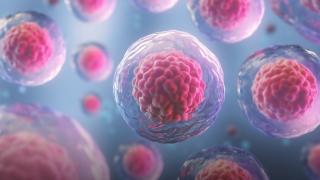Your physician is an excellent resource and should be a primary source of guidance. But despite the best efforts of health care providers, misconceptions about the disease persist.
Let’s take a look at — and correct — some of these myths.
Myth: Breast cancer always shows up as a lump. A lump is the most common symptom, but many women diagnosed with breast cancer don’t show signs. That’s why women are urged to both perform monthly self-exams of their breasts and talk to their doctor about when and how often to be screened for breast cancer. Women noticing worrisome changes to or unusual masses in their breasts should contact their doctor immediately.
Myth: People with a BRCA gene mutation are certain to get breast cancer. All women have BRCA1 and BRCA2 genes. They help with cell growth and repair; however, they also can develop mutations associated with breast cancer. But having — or not having — these mutations does not guarantee you will — or will not — develop the disease. So you may be interested in asking your doctor about genetic testing; having an accurate picture of your genetic markers can be a powerful tool for health care planning.
Myth: Eating gluten causes cancer. This is a myth that arose from the potential link between cancer and inflammation. The rationale goes something like this: If inflammation is linked to cancer and gluten is linked to inflammation, then not eating gluten might help prevent cancer. However, the truth is more nuanced. While gluten may be linked to inflammation, there does not appear to be clear-cut evidence that conclusively shows a gluten-free diet can help fight cancer or reduce the side effects of cancer treatment.
Myth: Men have nothing to be concerned about. While it’s much less common in men than in women, it is estimated that doctors will diagnose more than 2,700 U.S. men this year with breast cancer. As in women, men who feel a lump in their breast or see any other unusual swelling, redness, or nipple discharge should reach out to their doctor without delay.
The best way to treat breast cancer is to stop it in the first place. Understand your risk factors and talk with your doctor about preventive care, including breast cancer screening. If you have been diagnosed with breast cancer, seek care from a physician who specializes in your kind of cancer and can offer you access to the latest breakthroughs in breast cancer research, technology, and treatment.
Dilruba Haque, M.D., is a medical oncologist and hematologist at City of Hope Newport Beach Lido and City of Hope Irvine Sand Canyon who specializes in treating breast cancer.
Visit www.cityofhope.org/OC to learn more. To make an appointment at any of City of Hope’s four Orange County locations, click here or call:
- Newport Beach Fashion Island: (949) 763-2204
- Newport Beach Lido: (949) 999-1400
- Irvine Sand Canyon: (949) 333-7580
- Huntington Beach: (714) 252-9415
